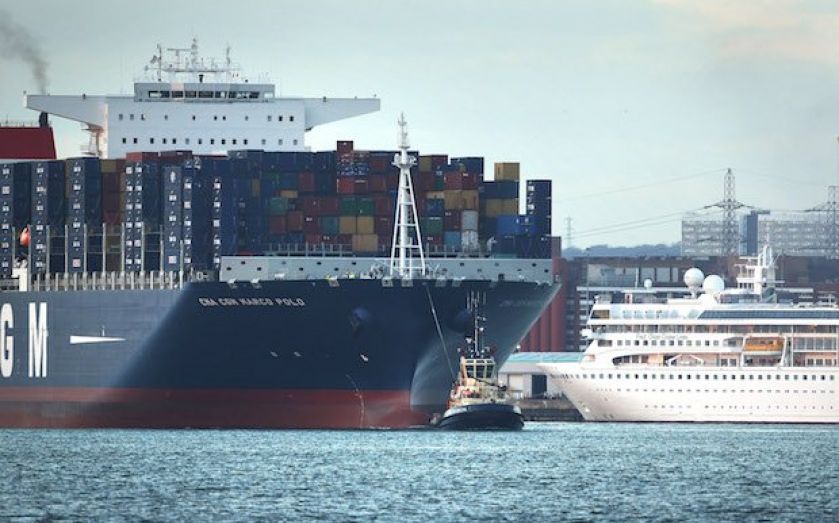UK’s trade deficit widens to largest since 2010

The UK's annual trade deficit has widened to £34.8bn – the largest since 2010 – as exports fell “significantly” through 2014.
According to figures just out from the Office for National Statistics, the widening deficit can be largely attributed to the £14.6bn drop in exports year-on-year.
The amount from imports also decreased – for the first time since 2009 – by £7.3bn.
Seasonally adjusted, the UK's deficit on trade in goods and services was put at £2.9bn in December, up from a revised £1.8bn in November.
The widening of the overall deficit mainly reflects an increase in the import of goods from countries outside of the European Union, the ONS said.
Exports in the month edged up 0.1 per cent while imports jumped by 2.7 per cent, pushed up by a nearly 40 per cent leap in the volume of oil imports on the month, reversing a trend of falling oil imports in previous months. Much of those imports came from Norway, according to the ONS.
Still, between the third and fourth quarter the deficit in goods narrowed by £2.2bn to £29.4bn, as exports increased to £73.8bn, again largely to countries outside the EU.
Berenberg chief UK economist Rob Wood said the figures had an "ugly headline but better details".
He explained: "The UK trade deficit overshot consensus markedly in December… The initial reaction to these figures then will probably be disappointment. Poor old UK, which just cannot seem to achieve any balance at all in its recovery and remains saddled by its proximity to the Eurozone. Dig into the details though, and a better picture emerges.
"Remember the UK still produces some oil. About a third of worsening in the deficit was due to oil. Excluding oil and erratic items, the monthly goods deficit worsened by £0.4bn to close to its recent average. When calculating Q4 GDP the statistics office estimated that industrial production fell in December in part because of a sharp decline in North Sea extraction, which is extremely volatile from month to month. Today’s rise in the oil deficit could be some corroborating evidence for that assessment, and could easily bounce back next month.
"That could mean Q4 industrial production will turn out to be weak when the data are published next week, but that should be similarly short-lived if it is driven by oil. Indeed, despite December’s worsening, the goods trade deficit narrowed in Q4 as a whole."
IHS chief economist Howard Archer noted that “net trade highly likely made a positive contribution to GDP growth in the fourth quarter of 2014, even though it moderated to 0.5 per cent quarter-on-quarter".
He added: “This would be a significant improvement on the third quarter when net trade knocked 0.2 percentage point off GDP growth.”
Archer said there were “welcome signs” of underlying improvement in exports, but said falling import prices “fuel suspicion that consumer price inflation is headed down further after dropping to a 14-year low of just 0.5 per cent in December.
“While oil prices have recently come off their lows, it currently seems unlikely that this marks the start of an appreciable rebound,” he added.